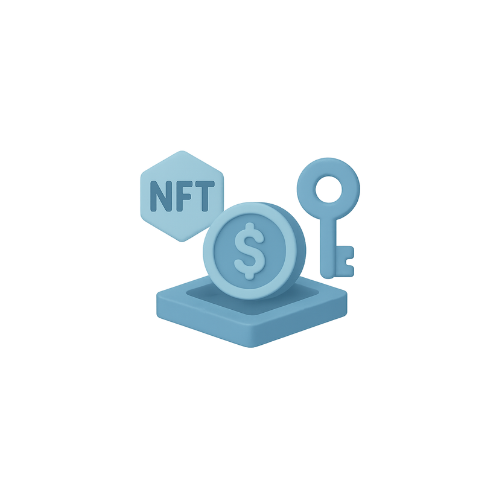 QED
QED
 English
English

 All Blogs
All Blogs

Asset Tokenization Platform: Unlocking the Future of Ownership and Investment
In recent years, blockchain technology has revolutionized industries ranging from finance to healthcare. Among its most transformative applications is asset tokenization, the process of converting real-world assets into digital tokens. At the heart of this innovation lies the asset tokenization platform, a powerful tool that enables businesses, investors, and consumers to participate in a new era of ownership, liquidity, and transparency.
According to Boston Consulting Group, the global value of tokenized assets could reach $16 trillion by 2030, representing nearly 10% of global GDP. Such numbers highlight the enormous potential of tokenization and the platforms that make it possible.
An asset tokenization platform is a digital system powered by blockchain that allows physical and intangible assets—such as real estate, equities, bonds, commodities, or intellectual property—to be represented as secure, tradable tokens.
These platforms provide the technological and regulatory infrastructure to:
For example, a $10 million commercial building can be divided into 100,000 digital tokens through an asset tokenization platform. Each token might represent 0.001% ownership, making the asset accessible to small and large investors worldwide.
The rise of the asset tokenization platform addresses many long-standing inefficiencies in traditional markets:
One of the leaders in this domain, Qed Vault, offers a secure and scalable asset tokenization platform designed for businesses and investors alike. Their system integrates blockchain technology with compliance features, ensuring tokens are secure, traceable, and aligned with international financial regulations.
For example, a business that wants to raise capital by tokenizing its equity can use Qed Vault’s platform to issue digital shares. Investors can buy and trade these tokens seamlessly, while Qed Vault ensures that each transaction is transparent, tamper-proof, and compliant.
For example, a business that wants to raise capital by tokenizing its equity can use Qed Vault’s platform to issue digital shares. Investors can buy and trade these tokens seamlessly, while Qed Vault ensures that each transaction is transparent, tamper-proof, and compliant.
This approach not only expands access to funding but also fosters investor trust.
For consumers, an asset tokenization platform means access to opportunities that were once reserved for high-net-worth individuals and institutions.
A survey by Deloitte found that 76% of executives believe digital assets will serve as strong alternatives to traditional financial systems. This belief reinforces how platforms will empower the next generation of investors.
Despite the benefits, challenges remain:
Regulatory clarity, education, and continuous innovation will be critical to overcoming these hurdles.
The future of asset tokenization platforms is promising. By 2030, experts predict tokenized markets will rival traditional financial systems. With advancements in AI, IoT, and blockchain scalability, these platforms will enable:
Companies like Qed Vault are at the forefront, ensuring that their platforms not only tokenize assets but also build trust, compliance, and inclusivity into the process.
In an age defined by digital transformation, the asset tokenization platform stands as a revolutionary tool that redefines how we own, trade, and invest. By enabling fractional ownership, enhancing liquidity, and ensuring transparency, tokenization is breaking barriers and creating new opportunities for businesses and consumers alike.
Leaders like Qed Vault are proving that tokenization is more than technology—it is the foundation of a new financial ecosystem that is secure, transparent, and inclusive.
For businesses seeking capital, investors chasing diversification, or consumers eager for access to exclusive assets, the asset tokenization platform is the gateway to the future.
Start with a free trial and redefine trust with the digital product passport